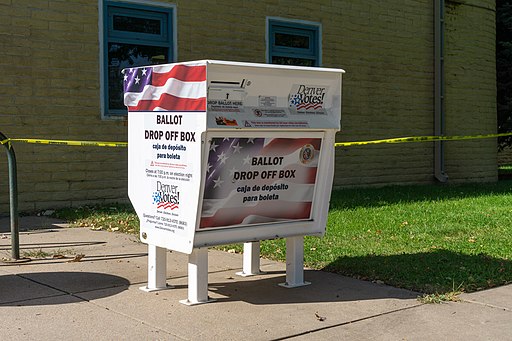
As I write this, we’re 47 days away from the November 8 general election — voters will elect candidates to all 435 US House seats, 35 US Senate seats, and other offices that vary from state to state.
As close as that sounds, in some places it’s even closer. “Early voting” begins 46 days before Election Day in Minnesota and South Dakota, 45 days early in Vermont, Virginia, and Wyoming, 40 days early in Illinois and Michigan, and with shorter windows in most states.
It’s time to start making some decisions. Not just on which candidates to vote for, but on whether to vote at all.
The usual answer to the question “should we vote?” is “of course!” Some consider it a “civic duty” and even suggest making it mandatory. It’s how the system works. If you don’t vote you have no right to complain about the outcome.
Some anarchists, libertarians, and other contrarians take things in the opposite direction. Voting, they say, signals consent to the results, and approval of a bad system. It’s a moral crime. If you vote you have no right to complain about the outcome.
Personally, I consider voting neither a civic duty nor a moral crime.
If I don’t like my choices (or the overall system), I’m under no obligation to pretend I do by voting.
On the other hand, the system does exist, and will continue to exist for the foreseeable future whether I vote or not, so there’s no reason I shouldn’t register my preferences as to how it operates and who runs it, if I feel like doing that.
I’m not going to try to convince you to vote. But I am going to try to convince SOME of you to NOT vote.
If you haven’t taken the time to familiarize yourself with the candidates and issues on your ballot, you shouldn’t vote.
If you’re familiar with some of the candidates and issues but not others, you shouldn’t vote on those latter candidates and issues.
Voting on things you neither understand nor particularly care about is just a waste of time, effort, and maybe gasoline. And while the chances of your vote being the deciding vote in any given election are about as good as your chances of winning a billion-plus-dollar lottery drawing, why take the risk of causing the “wrong” result by voting from a position of ignorance?
If you’re not sure you should vote, you probably shouldn’t.
Thomas L. Knapp (Twitter: @thomaslknapp) is director and senior news analyst at the William Lloyd Garrison Center for Libertarian Advocacy Journalism (thegarrisoncenter.org). He lives and works in north central Florida.
PUBLICATION/CITATION HISTORY
